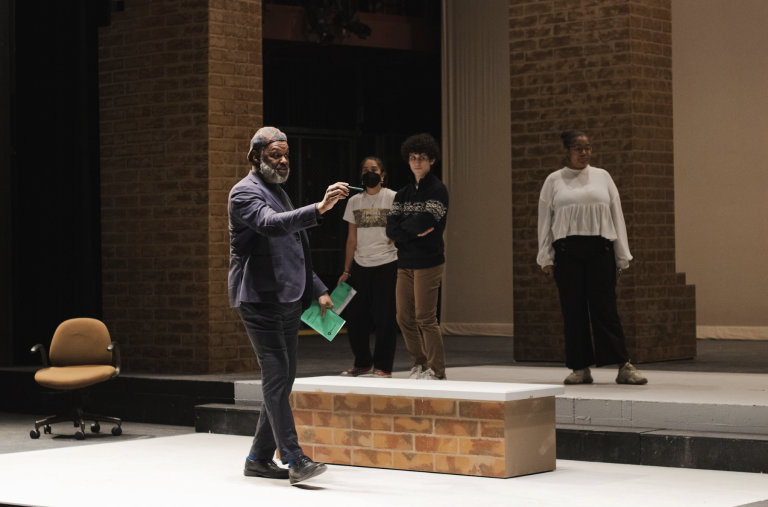DYLAN INGRAM ’18
CONTRIBUTING WRITER
In 1925, Virginia Woolf published an essay titled “On Not Knowing Greek.” In the piece, Woolf laments that a modern person will never hear the precise sound of the ancient Greek language, know how Greek actors held themselves on stage, or experience the lost works in the history of Greek literature. The modern audience is left with a few classic texts written by the most highly-respected authors and almost nothing beyond the page except for some archaeological remains.
How can a modern audience understand Greek tragedy, and how can that understanding be conveyed in performance? These questions remain unsolved or incompletely solved to both scholarly and amateur readers of Greek drama. On Thursday, April 5, two representatives from the Trojan Women Project at the La Mama Experimental Theater Club came to Trinity to present one approach to this problem: forging a deep connection to the sound of tragic drama.
Onni Johnson, a member of the original company, spoke about the history of the Trojan Women Project. In 1974, a performance of The Trojan Women was conceived as La Mama’s third rendition of a Greek play.
The theater club had a preoccupation with finding meaningful sounds in language regardless of the definition of the words associated with those sounds. Composer Elizabeth Swados created a script drawing from not only Euripides’ Greek text but also words and phrases from modern languages spoken across the globe, all of which were foreign to her. Kim Ima performed in the 1996 revival of the Trojan Women. Starting in in 2014, Ima, Johnson, and their fellow actors began to take the play to parts of the world affected by recent conflict as a way of artistically working through trauma. Since then, the Trojan Women Project has been to Guatemala, Cambodia, and Kosovo, where local performance groups have been taught to perform their own renditions of Swados’s text of The Trojan Women.
As Johnson talked about the group’s process, Ima shared photographs. In workshops, actors from La Mama and local troupes experiment with Swados’s work. They incorporate traditional local artforms into choreography and set design, and they try out new interpretations of the play’s staging according to the local groups’ interests. The talk was followed by a brief lunch reception, during which Ima and Johnson struck up conversations with students and faculty. Ima and Johnson seemed especially interested in connecting with students’ personal and educational backgrounds to hear their perspectives on the questions of Greek tragedy and its relevance today.
Trinity offers a study-away program in New York City in collaboration with La Mama every fall. Applications for rolling admission are still open online. Students interested in the program are encouraged to contact Eleanor Emerson in the Office of Study Away.
Tuesday, January 14 2025
The Student Newspaper at Trinity College in Hartford, Connecticut




+ There are no comments
Add yours